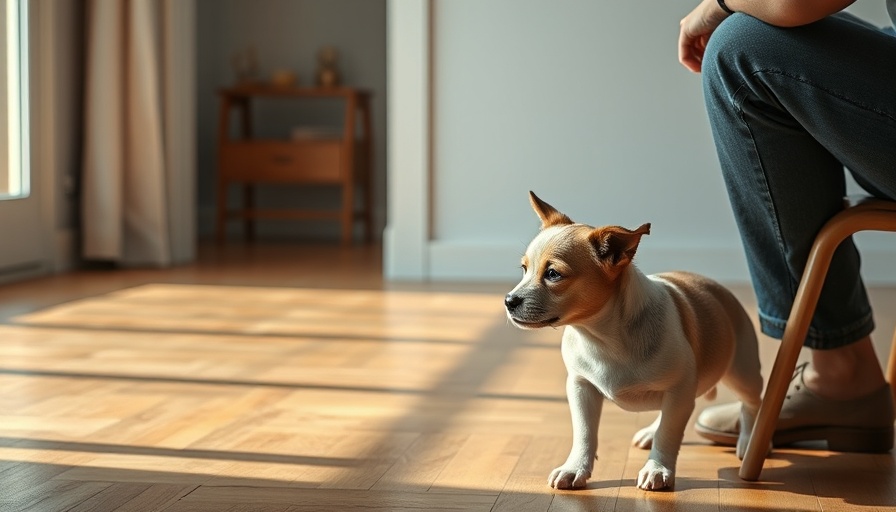
Do Dogs Experience Jealousy? Understanding the Signs
As pet owners, we often look for emotional connections with our furry friends, but can our dogs actually feel jealousy like we do? For many dog owners, the answer seems to be yes, as they observe behaviors that mimic human jealousy when their pets perceive competition for their love or attention. This article delves into the signs of jealousy in dogs, examining both scientific research and expert insights on how to recognize and manage these emotions.
Recognizing Jealous Behaviors in Dogs
Dogs express jealousy through a variety of behaviors that signal their discomfort when feeling left out or threatened by another person or pet. Some common signs to look for include:
Pushy Behavior: Your dog may wedge themselves between you and the object of their jealousy, be it another dog or person, to assert their presence.
Vocalizations: Whining or barking can serve as a clear indication that something bothers your dog, making their feelings known.
Destructive Actions: Chewing on furniture or engaging in other destructive habits can be a cry for attention in response to jealousy.
Aggression: Signs of aggression like growling or snapping may emerge when your dog feels their space is being invaded by another pet.
Clinginess: A dog might become overly attached, following you from room to room in a display of insecurity and need for reassurance.
The Science Behind Dog Jealousy
Recent studies have added a scientific dimension to our understanding of canine emotions. Researchers from the University of California, San Diego found that dogs can exhibit jealous behaviors resembling those observed in human children. In one experiment, dogs became agitated when their owners interacted with a stuffed dog, indicating an understanding of social competition.
Another study published in Animal Cognition observed that dogs displayed stronger jealous responses when their owners lavished attention on another dog rather than an object. This suggests that dogs have a complex social structure and are capable of recognizing relationships in their environment.
Dealing with Jealousy: Essential Tips for Owners
Managing jealousy in dogs is crucial for maintaining harmony in multi-pet households. Here are some practical strategies:
Equal Attention: Ensure you distribute affection evenly among your pets to prevent feelings of neglect.
Safe Spaces: Create a secure environment within your home, like a designated crate, where your dog can retreat when feeling anxious.
Separate Feeding Areas: To avoid competition during meal times, feed pets in separate areas.
Ignore Undesirable Behaviors: When your dog exhibits jealousy by being pushy or demanding attention, try to ignore them until they calm down —this can help them understand that such behavior is not rewarded.
Expert Perspectives on Jealousy and Possessiveness in Dogs
While jealousy can often appear as a pet trying to compete for attention, veterinarian insights suggest that these displays may also indicate possessiveness, and dogs can fail to recognize social cues from other animals and humans.
Dr. Vanesa Farmer highlights that a possessive dog may not respond appropriately to attempts of interaction with others, which can lead to aggressive behaviors when they feel their space is threatened. Understanding these dynamics is key for owners in addressing and correcting unwanted behavior.
Addressing Jealousy through Training
Effective management of jealousy in pets often requires proactive training. Consider consulting a dog behavior specialist who can guide you in training techniques geared toward reducing jealousy and increasing your dog's comfort level in social settings.
Train your dog using positive reinforcement when they exhibit calm behaviors, and be consistent in applying the same rules to all pets in your household.
In conclusion, jealousy in dogs is a complex issue that reflects their emotional intelligence and social awareness. By understanding the signs, addressing possessive behaviors, and creating an emotionally balanced environment, pet owners can foster a harmonious atmosphere for their beloved companions.
Take action now! Pay close attention to your dog's behavior and consider implementing these tips to manage jealousy effectively. Understanding and addressing these emotional needs is essential for ensuring your dog feels secure and loved. For further guidance on improving your dog's behavior and health, explore more resources like training classes or consult a pet behavior specialist.
 Add Row
Add Row  Add
Add 




Write A Comment